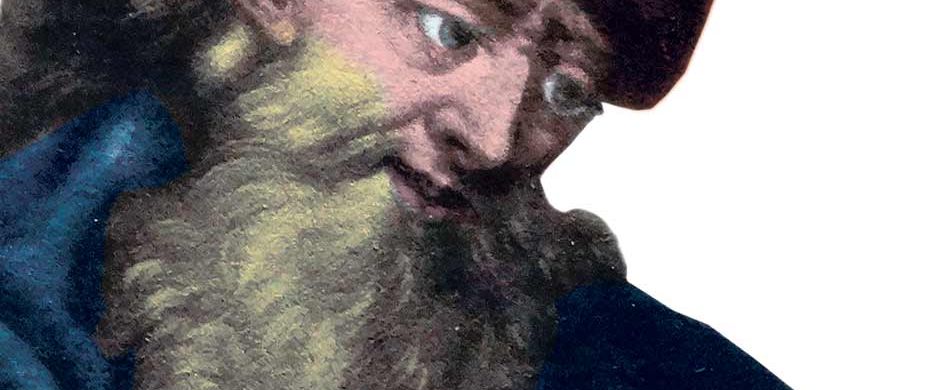I HAD been ordained a priest for just over a year when, at the end of 1985, I was sent to our friary in Como, in northern Italy, to help my fellow friars during the Christmas celebrations.
One of the friars was very kind to me and, and whenever we had a free moment, he would take me to see all the attractions the area had to offer, for the lake preserves its beauty all year around with its superb Alpine backdrop, the clear blue water and the stately villas.
On the last day of the year we were free until the beginning of the evening celebrations, and so we drove into one of the many valleys surrounding the lake. While we were driving through the many picturesque villages, I noticed something rather strange: hanging on the front doors of numerous houses there were a cane and a sack with something in it. I asked my fellow friar what it all meant, and he told me a rather curious story.
A few centuries ago, on New Year’s Eve, a petty usurer, a certain Tobias, was in the kitchen counting his gold coins while a snow-blizzard was raging outside. Suddenly, someone knocked on the door, and Tobias, on opening it, found a poor, scarcely-clad elderly man standing in front of him.
Feeling annoyed Tobias asked him who he was and what he wanted. The wayfarer told him that he was a beggar who had lost his way in the storm, and was asking permission to sleep in his barn. “I never allow anyone to sleep in my barn,” Tobias curtly replied, “so please go away. There’s nothing I can do for you!”
“I’m hungry. Can I at least have a small piece of bread!” the poor man continued. “I have no bread. Go away!” was Tobias’ harsh answer. The beggar, however, insisted, “Please, sir, give me at least an old sack with which to cover myself. I’m freezing!” Unmoved, Tobias continued, “I have no sacks nor clothes for you!” “For pity’s sake,” the old man pleaded, “can I at least have a walking stick? I’m so tired.” “Listen, you old fool, go away and leave me alone!” and with that Tobias slammed the door on the man’s face. However, a surprising thing happened just then: as soon as he returned to the kitchen to count his coins he found only a bunch of withered leaves.
Tobias ended his days wandering restlessly around the hamlets of the valley, telling people his story and urging everyone to always be generous to the poor. He died with a smile on his face at the door of a church. “From that moment onward,” my fellow friar concluded, “the inhabitants of this valley started placing a cane and a sack containing a loaf of bread on their front doors on New Year’s Eve.”
We have just concluded a very difficult year that has brought much suffering and difficulties to many families. It was, however, also a year that has taught us to care more for our brothers and sisters, especially for those who are less fortunate than ourselves. This was certainly what Tobias learned the hard way, and I like to think that, in the last moment of his life, he finally found the happiness that his gold coins could never give him.
According to the Gospels, happiness is not a utopia, but something that is very real and quite accessible to all of us. It does not so much consist in what we own or receive, but in what we are capable of giving to others.
If happiness were to depend on what we received from others, we would spend our whole lives in continuous disappointment because it is impossible for others to fully satisfy all our wishes all the time. If happiness, however, consists in generosity, then it is something that is immediately and completely within our reach.
May God give you a joyful and blessed 2021. Happy New Year!




